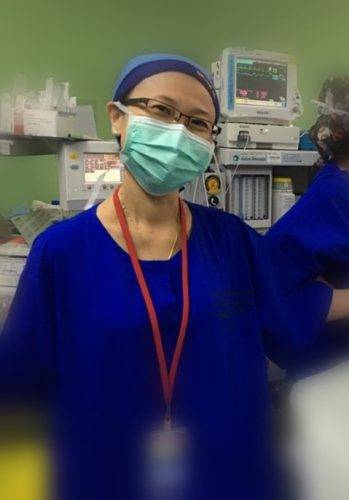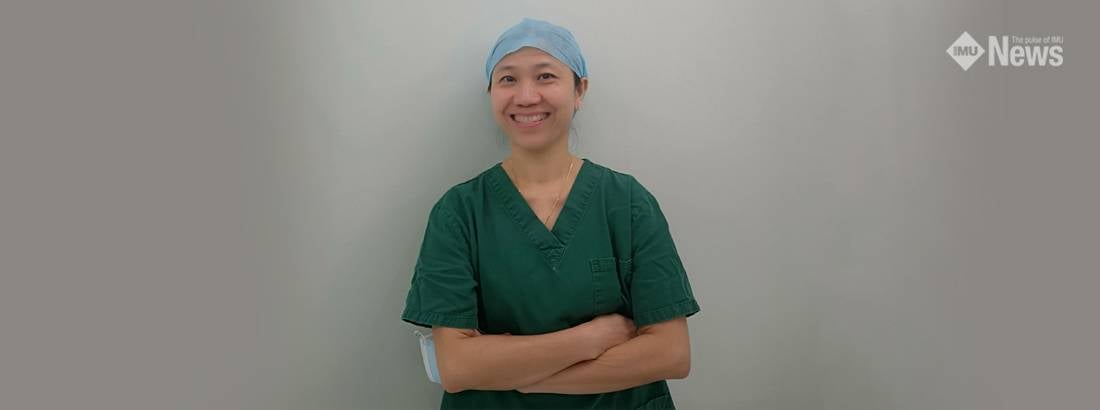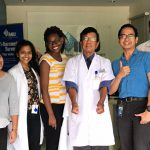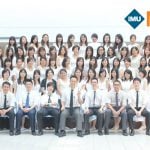My name is Yap Huey Ling. I am an anesthesiologist, currently practicing in a private hospital in Sandakan, Sabah.
As an anesthesiologist, apart from giving anesthesia in the operating theater and seeing patients in intensive care unit, treating patients with acute post-surgical and nonsurgical pain, chronic non-cancer and cancer pain is always our day-to-day work.

I would say treating patients with chronic pain is one of the most challenging tasks especially attending to a patient with multiple medical comorbidities and those with a long list of medications. To minimise damaging their organ functions and to avoid drugs interaction, the choices for pain medications are very limited. Thus, acupuncture is increasingly seen as an alternative option as a non-pharmacological method for pain relief. This is the reason why even government hospitals have also opened Traditional and Complementary Medicine (TCM) units within their premises.
Acupuncture is an ancient art which has been used in Asia for centuries to treat many conditions and relieve pain. Generally, people perceived that this may relieve pain by releasing endorphins, the body’s natural pain-killing chemicals.
Does acupuncture really work to quell pain!
I have always been asking myself.
The evidence for acupuncture is mixed, with some studies showing that acupuncture relieves pain and others showing that it works no better than “sham” acupuncture. I understand one of the problems with deciphering these results is that most acupuncture studies have been small, and the studies design also varied widely.
I was fortunate to work in a government hospital with a TCM unit. I also had a chance to participate in one of their acupuncture workshops during which I was exposed to the successful usage of acupuncture for surgical removal of breast lump and thyroid cyst. It was truly amazing, and I was inspired to learn more about acupuncture for pain relief. At the workshop, I met Prof Zhou, a Chinese Medicine Practitioner from International Medical University (IMU), who introduced me to an acupuncture master programme offered by IMU.
I am glad that I can have the opportunity to pursue a Master of Science in Acupuncture at IMU, which is a part-time programme. The timetable is as such that I can continue working and taking few days off in between work to attend classes. As someone coming from Sabah, this helps me a lot. The programme is well structured and easy to understand for someone who is totally naive about acupuncture and traditional medicine. The professors and lecturers were very helpful and approachable which totally eased us in our study journey. In addition, we have adequate practical training in acupuncture at IMU Healthcare’s Chinese Medicine Centre and other hospitals as well to broaden our exposure.
Additionally, IMU has displayed great flexibility in managing our lessons during the COVID-19 pandemic. Our physical classes were quickly switched to online classes so that our timetable would not be disrupted. Once the pandemic has eased up, arrangements were made for us to have practical training, with all the necessary precautions taken. Thus, I was able to learn well, it didn’t disappoint me and really opened my eyes to the world of acupuncture.
As any other working adult would experience, to find a balance between work, study and family can be very challenging and stressful at times. Time management is paramount especially for me who needed to travel from Sabah to West Malaysia to attend classes at times and for clinical attachment. With the good support from the lecturers and most importantly my family members, I successfully completed the programme.









